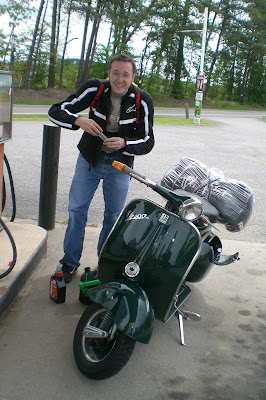


Hughes was introduced to Jamaican music when he lodged as a teenager in a West Indian household in Brixton, South West London. He met Jamaican artists Derrick Morgan andPrince Buster through his job as a bouncer at London nightclubs such as the Ram Jam in Brixton, and through another job as a bodyguard. After a brief spell as a professional wrestler (performing under the name "The Masked Executioner"), and as a debt collector for Trojan Records, he worked as a DJ on local radio and ran his own sound system.
When Prince Buster had a big underground hit in 1969 with "Big 5", Hughes capitalized on it with the recording of his own "Big Six", based on Verne & Son's "Little Boy Blue", which was picked up by Trojan boss Lee Gopthal, and released on Trojan's 'Big Shot' record label under the stage name Judge Dread, the name taken from another of Prince Buster's songs."Big Six" reached #11 in the UK Singles Chart in 1972, selling over 300,000 copies and spending six months on the chart, despite getting no radio airplay due to its lyrics. Further hit singles followed with "Big Seven" (co-written by Rupie Edwards) and "Big Eight" — both following the pattern of rude versions of nursery rhymes over a reggae backing — as well as "Y Viva Suspenders" and "Up With The Cock".
He was the first white recording artist to have a reggae hit in Jamaica ("Big Six"), leading him to travel to Jamaica to perform live, where many were surprised that he was white. Dread had 11 UK chart hits in the 1970s, which was more than any other reggae artist (including Bob Marley). The Guinness Book of World Records credits Judge Dread for having the highest number of banned songs of all time, 11. In the 1970s, tabloid newspapers expressed concerns that young fans of the comic book character Judge Dredd might buy Judge Dread's records by mistake, and hear things that may corrupt their minds. Several of his songs mentioned Snodland, the small town in Kent where Judge Dread lived. There is a road in the town of Snodland named after him, the Alex Hughes Close.
Never just a singer of rude reggae songs, Judge Dread was also a songwriter who came to the attention of Elvis Presley, who had planned to record "A Child's Prayer" as a Christmas gift to his daughter Lisa Marie in 1977, but died before making the recording.The famine in Ethiopia prompted Dread to help organize a benefit concert featuring The Wailers and Desmond Dekker, and he also released a benefit single "Molly". Despite this single not featuring Dread's trademark innuendo, it was still banned from radio airplay, and failed to chart. The radio stations' wariness over Dread records led him to release singles under the pseudonyms JD Alex and Jason Sinclair, but the BBC still banned them.
Judge Dread died from a heart attack as he walked off stage after performing at The Penny Theatre in Canterbury on the 13 March 1998.








































